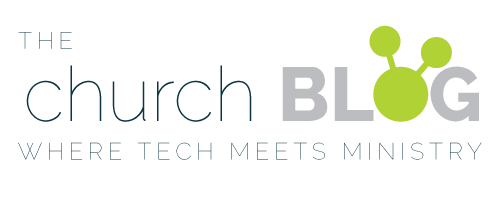Welcome to the third installment of our church tech terms series. For even more terms, be sure to check out part 1 and part 2.
 Really Simply Syndication (RSS)
Really Simply Syndication (RSS)
RSS is a popular way of making dynamic content, such as blog posts, accessible to a variety of readers (an RSS reader is a special app or website that reads and compiles the RSS content). RSS content is written in the XML language and must be coded properly to allow the various readers to interpret the content as intended. The advantage to RSS content is that users can access updated content without having to navigate to and load each individual website. It is a popular way of creating a specialized news feed, compiling content from a variety of websites. Some websites create RSS feeds natively, while others require separate coding from a developer. This is something to keep in mind when building a website.
Quick Response (QR) Code
At the most basic level, QR codes are an updated version of the traditional barcode. While barcodes are read linearly, QR codes contain more datapoints in a square design. These multiple datapoints allow QR codes to contain more information and a larger variety than the traditional barcode. QR codes can point to specific product information, a certain website, or even direct a user to download a specific app.
The Cloud
This is a popular term that you really need to understand. The cloud is a reference to the storage of data at an offsite location. When storing data locally (on the built-in hard drive of your computer or an external drive), there is a chance that data could be lost. The files could become corrupted, water could be spilled on the computer, or it all could be lost in a fire. Storing data in the cloud means that your information is not only stored at an offsite storage facility, it is backed up to multiple places, which almost eliminates the fear of it being lost for good. Another advantage is that your data is often available from multiple devices, so even if you are not at your main computer, you can still access your files. The Cloud technology can be important in how you understand your interaction with other areas of church tech. In many cases, the services you use for your ministry can be what is called “Cloud Based Software” in that you don’t have to download or install any kind of software to your computer. An example of this can be seen with services like SimpleChurchCRM where a church operates their products solely from the cloud.
Cache
Cache refers to content that is stored on a users local machine after being downloaded from a particular website. Cached information allows the user to more quickly load a website the next time they visit, since they will only have to load new content. Any content that is unchanged, specifically large files like images, are already stored on their local device and would not need to be downloaded again.
A cached site can also refer to a stored version of a website that is loaded if the current version becomes unavailable for some reason. Many website hosts offer a sort of caching service that protects your site against unnecessary downtime.
Digital footprint
While this term may stir up poetic memories, it is actually a matter that does require serious attention on behalf of a church. Digital footprint refers to the fact that once something goes online, it can never truly be deleted. Posts on social media, uploads to a website or forum, blog posts, and more stick around for longer than we might realize. Today, many children establish a digital footprint from the day they are born, with images being shared on various social media sites by family and friends. A church should consider not only having policies that govern its social media and web channels, but possibly even that of it’s staff. What goes online, stays online…forever.


Trackbacks/Pingbacks